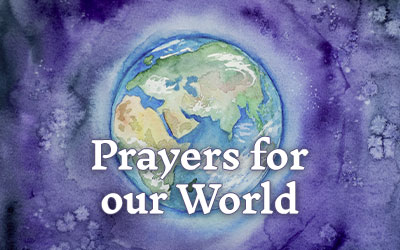Praying for Malaysia in the Aftermath of its National Election

(The following article was published in the Asia (print) edition of The Economist May 11, 2013 and shared with us by the Malaysia Prayer Fellowship.)
Malaysia’s General Election, Tawdry victory, The government scrapes home—allegedly aided by vote rigging
ON MAY 5th Malaysia’s Barisan Nasional coalition, led by the prime minister, Najib Razak, was re-elected for the 13th time in a row. Barisan won a majority of seats in parliament, 133 out of 222, against 89 for the opposition, a three-party coalition called Pakatan Rakyat and led by Anwar Ibrahim. The turnout was a record 85%. And so the same government which has ruled Malaysia since independence from Britain in 1957 is set for another five years in office.
Within Barisan, the overriding sense is of relief. It did slightly better in terms of seats than some had predicted. Scratch the surface, however, and in almost every respect this was a lamentable result for the ruling coalition, its worst ever. Not only did it lose a further seven seats to Pakatan, but it won with only 47% of the popular vote. It is further evidence of how the electoral system is skewed in Barisan’s favour, allowing it to stack up seats in the rural Malay heartlands with far fewer voters than Pakatan needs to win seats in more urban areas. In many places the opposition increased large majorities. For instance, in Penang in the north of the country the Barisan defeat was so humiliating that its candidate for governor, Teng Chang Yeow, resigned from all his party posts. Several government ministers lost their seats.
Most striking was that ethnic Chinese (about a quarter of the population) shifted their votes away from Barisan towards the opposition. The Chinese party of the Barisan coalition, the Malaysian Chinese Association, won just seven seats, down from 15, whereas the opposition’s mainly Chinese Democratic Action Party (DAP) picked up ten seats, for a final tally of 38.
Mr. Najib, unwisely, spoke of a “Chinese tsunami” breaking over his Barisan coalition. He has only his party to blame. The United Malays National Organisation (UMNO) dominates the Barisan coalition and appeals mainly to ethnic Malays and other indigenous groups who make up two-thirds of the population. UMNO ran a nasty, divisive campaign in the heartlands. This shored up its base of rural Malay voters, known as the bumiputra (“sons of the soil”). But it also alienated Chinese and other voters, already tired of the cronyism and corruption associated with affirmative-action policies that favour Malays over other ethnicities in business, education and the civil service.
So, despite professing to promote a multi-ethnic Malaysia, Barisan’s election strategy has left the country more divided than ever, both along ethnic lines and between urban and rural areas. The Malay press has not helped, with headlines asking “What more do the Chinese want, as it ethnic Chinese acted ungratefully towards Barisan…
Yet the result will not be the only dent in the government’s authority. So too will be the manner in which it was gained. Barisan starts all elections with incumbent advantages, including a slavish state media, tons of cash and constituency boundaries drawn in its favour. On top of that, allegations of dirty campaign tricks abound. “Phantom voters”, for example, appear to have been bussed into marginal constituencies to boost the Barisan vote. Nurul Izzah Anwar, Mr. Anwar’s daughter, contested one such seat in Kuala Lumpur. She and her supporters met several Bangladeshi workers who had been brought into the constituency to vote. She won, but only just…
Mr Anwar claims that fraud cost him the election. On May 8th. he and followers staged a big protest rally against the result. His claim is almost certainly an exaggeration. Still, the bitterness engendered by the vote will persist. “National reconciliation”, which Mr. Najib sees as the way to heal the wounds, looks a way off.
Pray for the healing of Malaysia’s political, social and religious divisions and for the raising up of strong indigenous church movements in all the diverse people groups of this multi-cultural nation.


